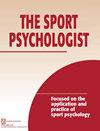体育从业者对动机性访谈的使用:一项定性调查
IF 1.2
4区 心理学
Q3 HOSPITALITY, LEISURE, SPORT & TOURISM
引用次数: 1
摘要
本研究探讨了专家在体育情境中使用动机访谈的方法。具体而言,目的是了解MI方法的哪些方面被认为对体育工作有价值,并开始了解如何最好地应用这些方面。九名从业者参加了半结构化访谈,主题分析确定了与MI的核心和子组成部分相关的主题(例如,关系精神、技术微观技能、应用工具和MI沟通风格连续体)。其他主题涉及将MI与其他干预措施相结合,与运动员合作的挑战(例如,强制出勤、对变化的矛盾心理),以及在体育环境中工作的独特方面(例如,接触点的频率、持续时间和位置)。参与者还概述了MI体育从业者培训课程的基本要素。这种咨询方法似乎具有宝贵的关系和技术组成部分,有助于建立治疗联盟,增强运动员对变革的准备,并支持在应用运动心理学中实施以行动为导向的干预措施。本文章由计算机程序翻译,如有差异,请以英文原文为准。
Practitioners’ Use of Motivational Interviewing in Sport: A Qualitative Enquiry
This study explored the use of motivational interviewing (MI) in sport contexts by experts in that approach. Specifically, the purpose was to understand which aspects of the MI approach are deemed valuable for working in sport and to begin to understand how these aspects are best applied. Nine practitioners participated in semistructured interviews, and thematic analysis identified themes related to core and subcomponents of MI (e.g., relational spirit, technical microskills, applied tools, and the MI communication styles continuum). Additional themes relate to integrating MI with other interventions, the challenges of working with athletes (e.g., mandated attendance, ambivalence about change), and unique aspects of working in sport contexts (e.g., frequency, duration, and location of contact points). The participants also outlined essential ingredients for an MI training curriculum for practitioners in sport. This counseling approach appears to have valuable relational and technical components to facilitate the building of the therapeutic alliance, enhance athlete readiness for change, and support delivery of action-oriented interventions in applied sport psychology.
求助全文
通过发布文献求助,成功后即可免费获取论文全文。
去求助
来源期刊

Sport Psychologist
医学-心理学
CiteScore
2.80
自引率
6.20%
发文量
18
审稿时长
>12 weeks
期刊介绍:
TSP is a scholarly refereed journal designed as a forum to stimulate thought and disseminate knowledge that focuses on the application and practice of sport psychology. A special emphasis of the journal is on the delivery of psychological services to practitioners such as athletes and coaches. TSP is international in scope and is receptive to diverse methodologies. TSP is published for sport psychology specialists who engage in research, teaching, and/or intervention in a variety of contexts including academic, public, and private settings. The journal is also intended for practitioners such as coaches who have training and interest in sport psychology.
 求助内容:
求助内容: 应助结果提醒方式:
应助结果提醒方式:


